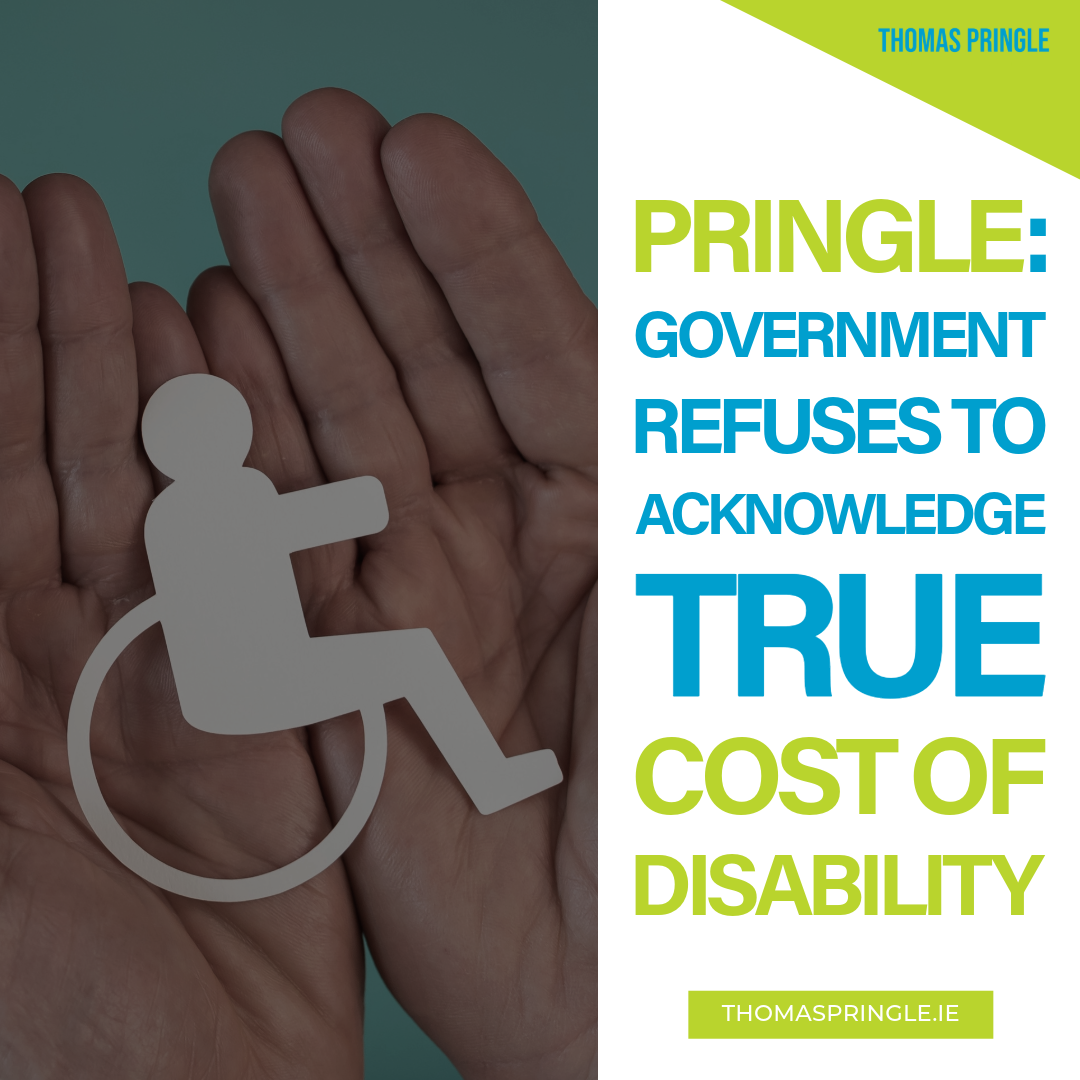- Pringle: We need a policy that recognises the importance of inshore fishing
- Pringle: Disabled people and carers face crisis of State neglect
- Pringle: Failed FF/FG housing policies forcing people to put their lives on hold
- Pringle welcomes Donegal council motion on Occupied Territories Bill: ‘We cannot stand by in the face of genocide’
Pringle: Government refuses to acknowledge true cost of disability
- Updated: 16th October 2024

Independent TD for Donegal, Thomas Pringle, reiterated his calls for a permanent disability payment and for purpose-built housing for people with disabilities, as he slammed government for its lack of care and understanding for disabled people.
Addressing the Dáil on Tuesday evening, Deputy Pringle said: “According to the most recent census, 22% of our population are living with a disability and despite this, disabled people are too often left behind and not given adequate access to the services they need.
“I support this motion and particularly its calls on the government to set a date for the ratification of the Optional Protocol of the United Nations Convention on the Rights of Persons with Disabilities and its call for the government to acknowledge its failure to recognise the additional cost of disability in Budget 2025,” he said.
The deputy was speaking on the Sinn Féin Motion re Disability services. He said there is an urgent need for the full ratification of the Optional Protocol.
Deputy Pringle said: “The fact that this, and the amendments to the EPSEN Act, have been left unaddressed for nearly two decades is an absolute disgrace. It is one of the clearest indicators of the lack of care and understanding this Government has for disabled people, along with the government’s refusal to acknowledge the true cost of disability.
“There are significant additional costs faced by disabled people, which are currently not met by existing programmes or by social welfare payments. Households with disabilities incur significant extra costs and are most at risk of poverty, and a once-off payment does not recognise that the costs linked to a disability are not temporary or once off.
“According to Social Justice Ireland, people with a disability are three times more likely to be at risk of poverty and are twice as likely to be experiencing deprivation. If we want to make this society more equitable and more accessible for people with disabilities, then we need to ensure that people aren’t at a financial disadvantage and that people are being adequately supported by the State.
“During the budget debate I called for a permanent cost of disability payment of, at least, €50 per week and I would like to reiterate that call today. I would also like to reiterate my call for purpose-built housing for people with disabilities as well.
The deputy said: “I would call on all those in need of purpose-built housing to apply for public housing with their local authorities so that local authorities are able to get a better idea of what is needed. And I would call on the government to adopt a better and more direct way of assessing the need for purpose-built housing.
“There should be a far simpler and more accessible way for people to apply for purpose-built housing,” he said, saying many council applications for public housing are long and not accessible.
Deputy Pringle said: “People should feel that they have choice and control when it comes to applying for housing or when it comes to funding that affects them directly. I would like to echo Independent Living Movement Ireland’s call to ensure that disabled people are empowered to make their own choices and to ensure disabled people are in control of the organisations that the State funds to provide disability services.
“Disabled people have a right to agency and choice in their lives, however most of the government’s disability funding goes to ‘disability service providers’ through annual grants instead of directly to disabled people. As it stands, disabled people have very little control or say in how funding is spent, or on the types of supports or services they receive.
“This needs to change and Disabled Persons’ Organisations should be consulted in any changes to funding or services. We need to start moving away from systems that segregate and marginalise disabled people and move towards inclusive policies,” he said.



